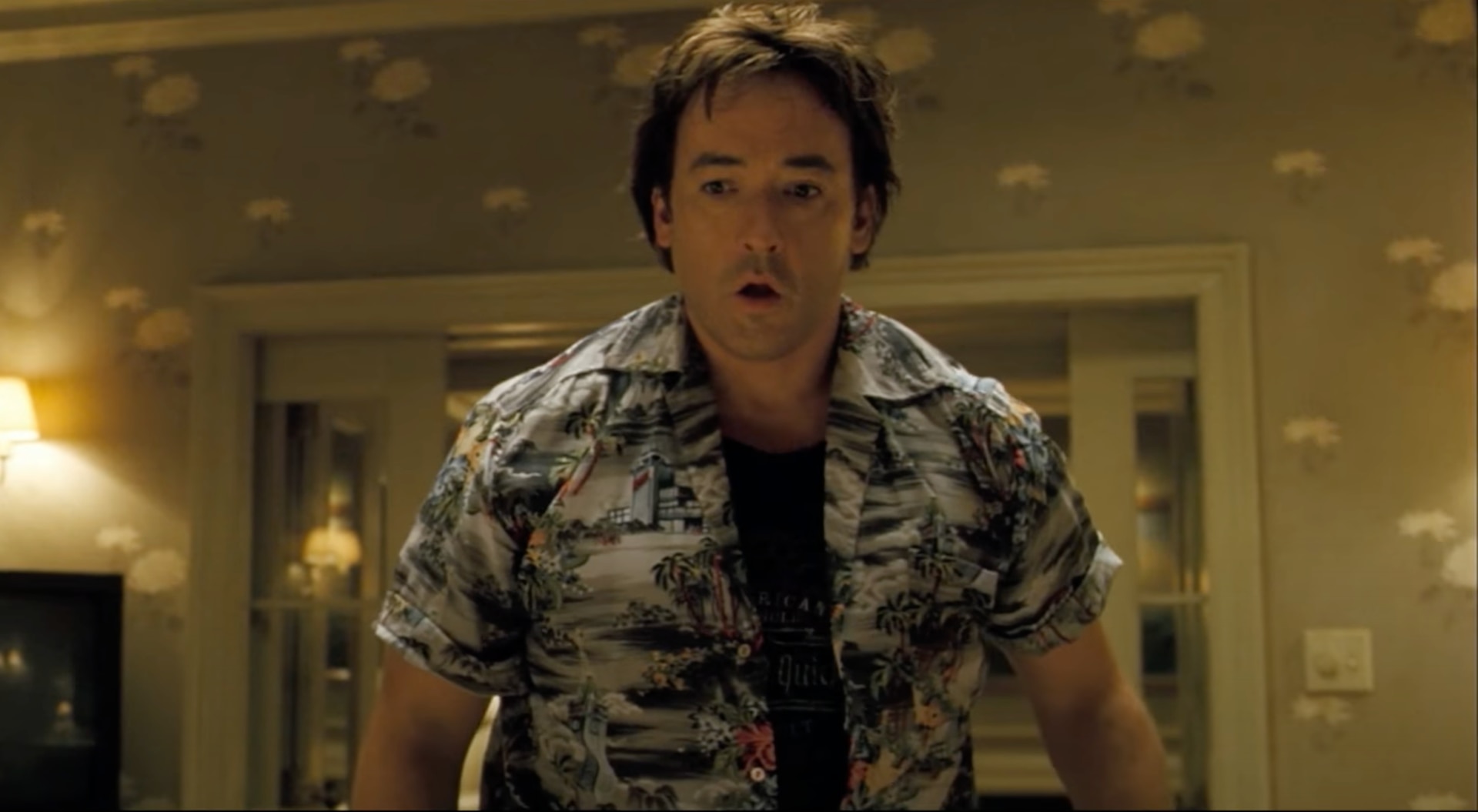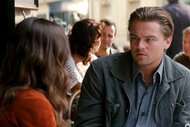Create a free profile to get unlimited access to exclusive videos, sweepstakes, and more!
This Stephen King Film Based on a Little-Known Short Story is One of His Best Movies
1408 takes a short story and turns it into big cinematic scares.

The history of Stephen King film adaptations is famously uneven, a mixture of masterpieces and duds, and that's particularly true when you look at adaptations of his short fiction. What started with segments in anthology films like Creepshow soon gave way to feature-length adaptations of King's short stories like Children of the Corn, Maximum Overdrive, Graveyard Shift, and a host of others. In some cases, the concept at the heart of the story was enough to expand nicely into a 90-minute scarefest, while in others the translation plainly didn't go very well.
Thankfully, 1408 (streaming now on Peacock) is a welcome case of the former, a film adaptation that keeps the core of King's original piece of short fiction intact, then expands it into an intimate, tightly structured descent into madness. Released 17 years ago, 1408 is the little Stephen King movie that could, a sometimes forgotten but still quite solid piece of horror cinema that holds up because of its tight, laser focus on its chosen subject.
Originally released in the audio collection Blood and Smoke and later printed in King's 2002 collection Everything's Eventual, "1408" is King's riff on a classic ghost story format: The Haunted Room at the Inn. It follows Mike Enslin (played by John Cusack in the film) a writer best known for a series of travel books on haunted houses, haunted cemeteries, and haunted castles. Mike has chosen haunted hotels as the subject of his next release, and in his research, he stumbles upon a hotel room so notorious that the hotel in question won't even open it to guests anymore. With a reputation like that, the room has to be in Mike's next book, and he demands that the hotel's manager (Samuel L. Jackson) let him stay the night in room 1408, a room with a long history of suicides and deaths with an aura so frightening that even the maids can only stay in the room for minutes at a time.
Stephen King's 1408 was adapted from a short story
The film adaptation, directed by Mikael Håfström from a script by Matt Greenberg, Scott Alexander, and Larry Karaszewski, keeps this setup intact, and carries over many important details from Mike's life and the overall setup of the story. In King's tale, Mike is a failed poet and once-promising fiction writer who turned to "true" ghost stories to make money and turned out to be good at it, despite his cynicism over all things supernatural. He's still holding a grudge over his fiction not working out, but he's good at what he does, and he's especially good at making sure everyone knows that he's not the least bit inclined to believe in ghosts. The problem with this, as both the book and the film version of the hotel manager point out, is that Mike's worldview goes beyond skepticism and into flat-out negativity, as his writing and his outlook seem to rob anyone and everyone of the possibility that there might be something more beyond death. He is, as the manager puts it, a crusher of dreams, out to squash the idea that anyone could ever endure beyond this mortal coil.
It's with this basic tonal setup (though the actual confrontation with these words comes slightly later in the film) in place that 1408 leads Mike into the title room for what's roughly an hour of screentime in the film, time that ticks down on the room's malfunctioning bedside alarm clock as the writer slowly spirals into darkness. Before he enters the room, Mike gets a very basic summation of what 1408 is from the manager: "It's an evil f***ing room," not a direct quote from King's story, but a concise way of laying out what King set out to depict. That's the trick to 1408 on both the page and the screen. It's not a ghost story in the traditional sense. It's about something much darker.
How 1408 expands on Stephen King's original story
In the story, what happens to Mike in the room is a little more nebulous and open to interpretation, but the film requires at least a slight expansion on what goes on within those walls, and how Mike deals with it. Håfström stages the action like a survival thriller, first introducing the supernatural elements, then following Mike's methodical mind as he attempts to first explain away, then actively escape events in the room. It's an impressively structured look at how someone might really go about trying to escape a hotel room, from trying to pick the lock on the door all the way to crawling out the window and onto the ledge, and watching as the room adapts to Mike's efforts makes the tension both palpable and sustained.
Then there's the thematic heartbeat of the film, the ideas the screenwriters expand on from King's original story to give it a little more heft for the screen. In the story, Mike is amicably divorced. In the film, he's separated from his wife (Mary McCormack) after the loss of their daughter, who died very young from an illness. This loss, and the drifting, lonely life Mike has developed in its aftermath, hangs over the film, and becomes the key piece of his existence that the evil room exploits for maximum horror effectiveness. How Mike deals with that exploitation, and how it eventually resolves, makes up the true heart of the film, and helps 1408 build from clever setpiece to all-out exploration of existential dread.
A decade and a half after its release, 1408 still ranks among the best Stephen King adaptations, even if it's been pushed aside by higher-profile projects in the public imagination. If you never made time for it, or if you haven't seen it since theaters, give it a try. It'll make you think twice about your next hotel stay, at the very least.
1408 is streaming now on Peacock.
Originally published Jun 22, 2022.


























